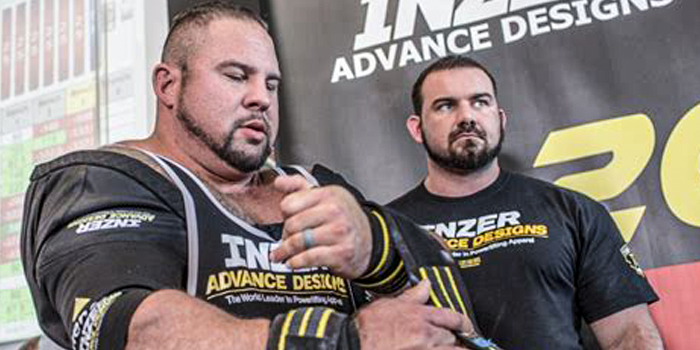
Experience is the best teacher. Now that I no longer compete, I want to help strength athletes stay in the game as long as possible. Here are some of the big rocks or boulders you should focus on in your training and your entire approach, especially if you're trying to compete at the highest level many people overlook.
Of course, this is for the strength athlete, not only the equipped and unequipped powerlifter, so don't check on me. Most of these details are incredibly pertinent, regardless of how you choose to compete and are in no particular order.
RECENT: Why I Walked Away From Powerlifting
Consider where YOU lack focus. These things are widespread knowledge, nothing ground-breaking but surprisingly not prioritized correctly. All of this comes down to compliance and consistency.
If you genuinely take your path seriously, you will do all you can to control your variables.
Diet
Be consistent daily. Eat the same food repeatedly and don't change things very often so that your weight stays the same if you are in a weight-restricted division sport or you are a powerlifter and lift in gear.
It would help if you had your body weight dialed in; that way, you don't have fluctuations of more than two to five pounds—which is pretty standard for a 200-pound person. When not planned, a significant change in body weight can ruin training, the fit of your gear, and your head when you're pushing toward a competition.
With the evolution of strongman, now with more weight classes and lifting gear allowed, this matters even more. Whenever I'd reach out to Rudy from Overkill to discuss a gear fit, his first question without fail would be, "What is your weight, and what was it when you took your measurements? Keep control of bloat and swelling from seasonal climate/season changes, stress, and supplementation. Heavy training can change your physique and shape."
So true and accurate, as I've made this mistake many times and wanted to chuck my scale. One time, I woke up on Christmas day, weighed 10 pounds more than I liked, and just went back to bed, like a little bitch, and refused to get up before 3 pm. It ruined my day, and I acted like a child, which I'm not very proud of. You have 100% control over what you put in your mouth, what you eat, drink, and take.
Stress
It will be there, but one way to help is to eliminate drama and distractions. Seems pretty obvious, but it's harder for some than others when the gear milligrams and the pressure builds when you're focused on competition.
If you want your relationships to last, communicate to those around you, i.e., family, etc. (more on training partners later), and let them know that you're very focused and that you'll be more present when the prep is over.
Ten years ago, I did a video about a conversation with Dave Tate about NFL players, as they treat the offseason (gone less) and season (redlining) as phases of training. I discuss this in my book 10/20/Life, too.
If you plan on competing for a long time, and you're all in, I suggest a plan. If nothing else, you have to get off the gear or lower the dose, so you respond when it matters.
Gear makes me miserable and someone I can no longer tolerate. One of the main reasons people leave strength sports before they are ready is their significant other has enough of the circus. Invest back into your partner after the meet is over.
Non-negotiable.
Training Partners
You can't do it alone (to the fullest). The amount of work someone has to do and deny and things to move around and balance in their life is overwhelming, and we aren't even talking about the training and competition day.
To train, you must be fortunate enough to have reliable and trustworthy training partners to help spot, coach, and push you. Keeping them happy and not pissing them off so bad that you are hell to be around.
Unfortunately, this myopic doesn't include people's feelings. There's a balance here because they're not at a daycare, but at the same time, you should treat them well and buy them lunch, pay for their trips, etc.
Be careful as this can cause unnecessary drama in your gym or your crew being afraid of you or afraid to speak up when you need some helpful advice. But, again, there's a balance, and I've been on opposite ends at different times. It's better to be somewhere in the middle, in my opinion.
If it's your gym, be a good leader and set the thermostat for training. Set the tone and make the rules. And this goes without saying; the person prepping for the competition gets priority in the gym. They also must return the favor when not preparing and help out while not going AWOL.
If people finish their prep and disappear, that should be grounds for removal.
Finding a good crew is one of the most challenging but rewarding aspects of powerlifting. It's also the most expensive aspect of powerlifting.
Train How You Plan to Compete
In the offseason, there will be some variance to this. In Gift of Injury and 10/20/Life, I discuss that you have to have some time away from the 'grind' as do those around you—the rest is to heal and let your bones recover (especially in your back).
When it's time to compete, whether you choose ten weeks or whatever to 'turn it on,' you need to start prepping for how you will compete.
If it's powerlifting, you'll begin training with the monolift, squat stands, or combo-rack bench. Consider the platform surface you'll be on and what bars you'll be gripping.
Will your meet be a big meet, where you will be lifting all day, or will it be a fast meet? You may need to be prepared to have 10-15 minutes between attempts (depending on many different factors).
Will the judging be super strict or average? Is there money involved? Do you have a realistic chance of placing or winning the money? Are you lifting for the total or the win?
Sometimes you can have both. Other times, you cannot.
I've made mistakes where I went for the total first, missed the lift, lost the total and first place.
I don't think I'll ever forget my mistake at the 2006 WPC Worlds/WPO Semis. I went for a 2400 total with a 738 deadlift and missed it twice. Shawn Frankl tied me on his last deadlift.
He played the game better and won.
I learned a hard lesson that day. I hope you don't have to learn a painful lesson like this—it still hurts 16 years later!
A competitive powerlifter since 1999, Brian Carroll is one of the most accomplished lifters in the history of the sport. Having lifted at the elite world-class level since 2005, Brian has well over a decade of world-class lifting experience. He has totaled more than ten times his body weight in three different classes, and both bench pressed and deadlifted over 800 pounds in two different classes. In his career, he’s totaled 2500 over 20 times in 2 different weight classes. Most recently (10.3.20), Brian set the highest squat of all-time (regardless of weight class) with 1306 pounds at a bodyweight of 303 pounds.










